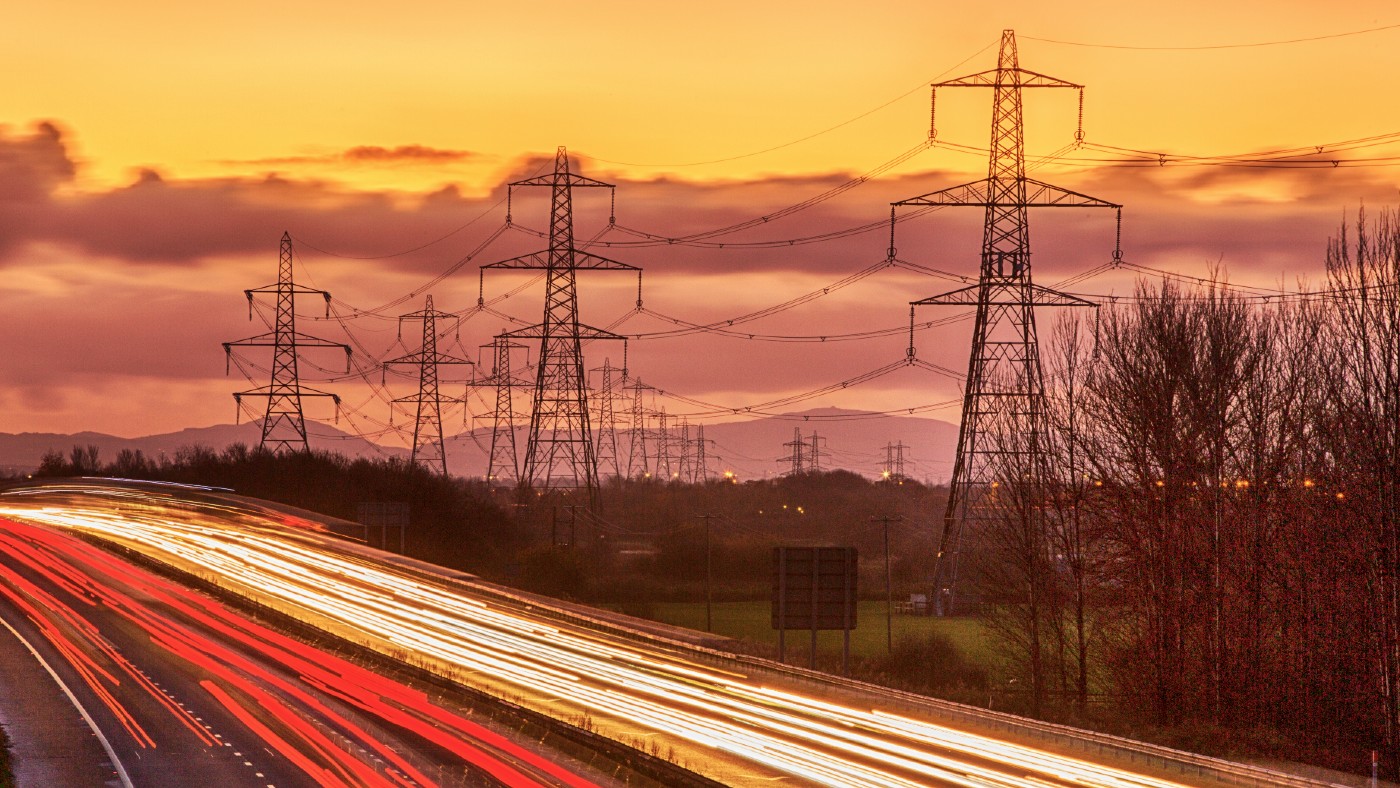How bad will the energy crisis get and what is being done?
Inflation is predicted to hit 18.6% in January, and energy bills are soaring

A free daily email with the biggest news stories of the day – and the best features from TheWeek.com
You are now subscribed
Your newsletter sign-up was successful
With every passing week, the inflation shock facing the UK looks bigger and more frightening, said Chris Giles in the FT. The benchmark European gas price surged to its highest closing price on record on Monday, as Russia shut down a key pipeline, taking the rise during August alone to 45%.
Inflation will now hit 18.6% in January, according to Citi analysts – higher than after the second OPEC oil shock of 1979, when CPI hit 17.8%. Households faced another jump in the cap on energy prices on Friday. Regulator Ofgem announced that the typical household energy bill will hit £3,549 a year from 1 October – an 80% rise from £1,971.
That’s just for starters, said Emily Gosden in The Times. The cap is now slated to go to £4,600 in January, and more than £5,800 in April. A winter reckoning is coming, with the very real chance of shortages and blackouts.
The Week
Escape your echo chamber. Get the facts behind the news, plus analysis from multiple perspectives.

Sign up for The Week's Free Newsletters
From our morning news briefing to a weekly Good News Newsletter, get the best of The Week delivered directly to your inbox.
From our morning news briefing to a weekly Good News Newsletter, get the best of The Week delivered directly to your inbox.
How will small business be affected?
The misery facing households is “only half the story”, said The Sunday Times. Small and medium-sized businesses (SMEs) are the “backbone of this country’s economy” – and that backbone is “creaking and threatening to break”. Businesses don’t benefit from a price cap, and pay 20% VAT on energy compared with 5% for households.
Thousands of SMEs have already closed or are “on the brink”. Nearly one in six say they expect to shut or downsize – a “more serious” shock even than the pandemic. Alas, this reckoning could “scar the economy for years to come” in a country that already seems to be “falling apart”. Just as the oil shocks of the 1970s “shifted the economic dial, ushering in prolonged high inflation and unemployment and a barren business environment, the risk is that we go down that rocky road again”.
What can be done?
Energy suppliers and politicians are nearing consensus on a “deficit tariff scheme”, said George Hay on Breakingviews. The plan would keep consumer bills at around their current level, and government-backed loans would “front suppliers the difference between wholesale energy prices and what customers are paying”. The deficit would then be closed by charging customers an increment on bills for a decade or more. “The idea is simple, and necessary. But it will cost a bomb” – some £116bn if gas prices stay high for two years, as forward prices suggest.
A Covid-style bailout for energy bills is “now inevitable”, said The Sun. It’s needed to help millions of Britons avoid “shivering hunger” this winter. But a wider bailout that subsidises all households and businesses would be damaging if it convinces the public that “our Government, after its Covid generosity, will borrow limitless amounts” to shield us “from any hardship inflicted by global events. That is not possible. It is the fast track to national insolvency.”
A free daily email with the biggest news stories of the day – and the best features from TheWeek.com
-
 Labor secretary’s husband barred amid assault probe
Labor secretary’s husband barred amid assault probeSpeed Read Shawn DeRemer, the husband of Labor Secretary Lori Chavez-DeRemer, has been accused of sexual assault
-
 Trump touts pledges at 1st Board of Peace meeting
Trump touts pledges at 1st Board of Peace meetingSpeed Read At the inaugural meeting, the president announced nine countries have agreed to pledge a combined $7 billion for a Gaza relief package
-
 Britain’s ex-Prince Andrew arrested over Epstein ties
Britain’s ex-Prince Andrew arrested over Epstein tiesSpeed Read The younger brother of King Charles III has not yet been charged
-
 Health insurance: Premiums soar as ACA subsidies end
Health insurance: Premiums soar as ACA subsidies endFeature 1.4 million people have dropped coverage
-
 Anthropic: AI triggers the ‘SaaSpocalypse’
Anthropic: AI triggers the ‘SaaSpocalypse’Feature A grim reaper for software services?
-
 Currencies: Why Trump wants a weak dollar
Currencies: Why Trump wants a weak dollarFeature The dollar has fallen 12% since Trump took office
-
 Elon Musk’s starry mega-merger
Elon Musk’s starry mega-mergerTalking Point SpaceX founder is promising investors a rocket trip to the future – and a sprawling conglomerate to boot
-
 TikTok: New owners, same risks
TikTok: New owners, same risksFeature What are Larry Ellison’s plans for TikTok US?
-
 Will SpaceX, OpenAI and Anthropic make 2026 the year of mega tech listings?
Will SpaceX, OpenAI and Anthropic make 2026 the year of mega tech listings?In Depth SpaceX float may come as soon as this year, and would be the largest IPO in history
-
 Leadership: A conspicuous silence from CEOs
Leadership: A conspicuous silence from CEOsFeature CEOs were more vocal during Trump’s first term
-
 Ryanair/SpaceX: could Musk really buy the airline?
Ryanair/SpaceX: could Musk really buy the airline?Talking Point Irish budget carrier has become embroiled in unlikely feud with the world’s wealthiest man